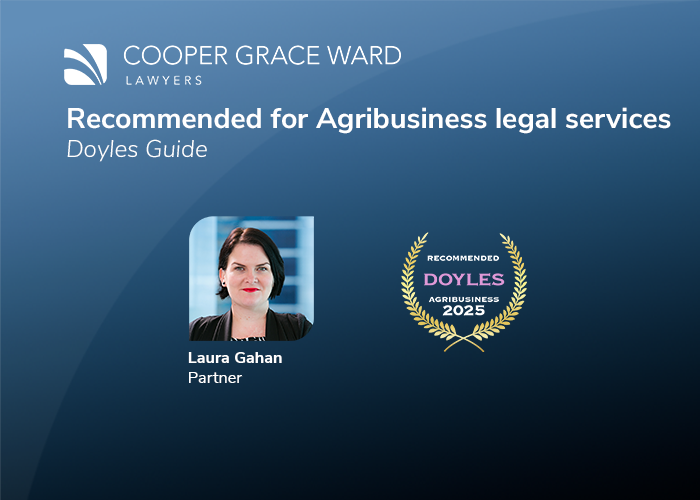As directors consider how to meet their duties during the COVID-19 pandemic, the safe harbour provisions may provide some protection from insolvent trading liability.
Introduction
Government bans on non-essential gatherings, stock market volatility and supply chain shortages are a few of the initial reactions to COVID-19. However, the longer-term effects of the pandemic are largely unknown. Insolvency is a real risk for companies confronted with sustained economic downturn. As companies grapple with rapidly changing conditions, we remind directors to keep their duties in mind. We have set out some of the relevant considerations below, along with some information about temporary measures that have been introduced to further support directors and companies in the face of COVID-19.
Duty to prevent insolvent trading
Under the Corporations Act, directors have a duty to prevent a company from trading while insolvent. The Corporations Act classifies a company as insolvent if it is unable to pay all its debts as and when they become due and payable. This means that directors are prevented from permitting a company to incur a debt where they have reasonable grounds for suspecting that the company is insolvent or will become insolvent if the company incurs that debt.
Directors can be liable for financial penalties or imprisonment (or both) for breaches of this duty.
2017 safe harbour provisions
The Corporations Act contains safe harbour provisions, which were introduced in 2017 to provide directors with protection from personal liability for insolvent trading while investigating options for turnaround and restructure of their companies in times of financial difficulties (rather than prematurely entering voluntary administration or liquidation). These provisions may be a lifeline for directors currently facing challenges arising from COVID-19.
Broadly, the safe harbour provisions set out that a director will not be liable for insolvent trading in respect of debts incurred directly or indirectly in connection with one or more courses of action that are developed by the director at the time they start to suspect that their company is, or may become, insolvent. The director will need to demonstrate that the course of action is reasonably likely to lead to a better outcome for the company than the immediate appointment of an administrator or liquidator.
This safe harbour will not apply indefinitely. For example, the protection will end if the director fails or ceases to take the relevant course of action, if the action ceases to be likely to lead to a better outcome, or if administrators or liquidators are appointed to the company.
If you are considering relying on this safe harbour, we recommend that you prepare a detailed safe harbour plan to satisfy the evidentiary requirements. You also need to make sure that the company is up-to-date with payments of employee entitlements and taxation requirements.
COVID-19 relief for directors: an additional safe harbour
In response to COVID-19, the federal government has provided further aid to directors. The federal parliament recently passed several measures aimed at shielding companies and their directors from the impacts of COVID-19, see our article Government announces temporary relief from insolvent trading, statutory demands and bankruptcy notices for more information.
The new Coronavirus Economic Response Package Omnibus Act 2020 (Cth) (CERPO Act) grants temporary immunity to directors from insolvent trading liability for a period of six months (commencing on 25 March 2020) in relation to debts incurred in the ‘ordinary course of the company’s business’. It is accepted that a debt will be incurred in the ordinary course of business if it is necessary to facilitate continuing business during this period. Other examples of relevant debts may be loans to move some business operations online or to continue to pay employees during the pandemic.
Directors seeking to rely on this temporary relief will need to ensure that:
- the debts incurred fall within the scope of the safe harbour
- there is a reasonable prospect that the company will be able to return to solvent trading at the expiry of the six month period.
While not an explicit requirement in the CERPO Act, the second point recognises that, once a company determines it will not be able to return to solvency following the six month period, it may be difficult to claim that debts incurred subsequent to this point were incurred in the ‘ordinary course of the company’s business’. For many businesses, this requirement will be difficult to satisfy as the effects of COVID-19 are likely to linger for longer than six months. However, the relief could still be helpful for businesses that are expected to recover quickly following the crisis.
What can directors do in the face of insolvency?
If you are a director of a company that may be facing insolvency, we recommend that you:
- hold regular board and management meetings
- stay informed of the company’s financial position
- keep detailed financial records
- obtain advice from an appropriately qualified expert
- assess available options for improving the financial position of the company
- develop and implement a plan for restructuring the company operations to improve its financial position
- delay the incurrence of debt (particularly large debts), where possible.
Directors should also keep in mind that other directors’ duties (such as the duty to act in good faith and in the best interests of the company and the duty to avoid conflicts of interest) still apply despite the available safe harbours.






